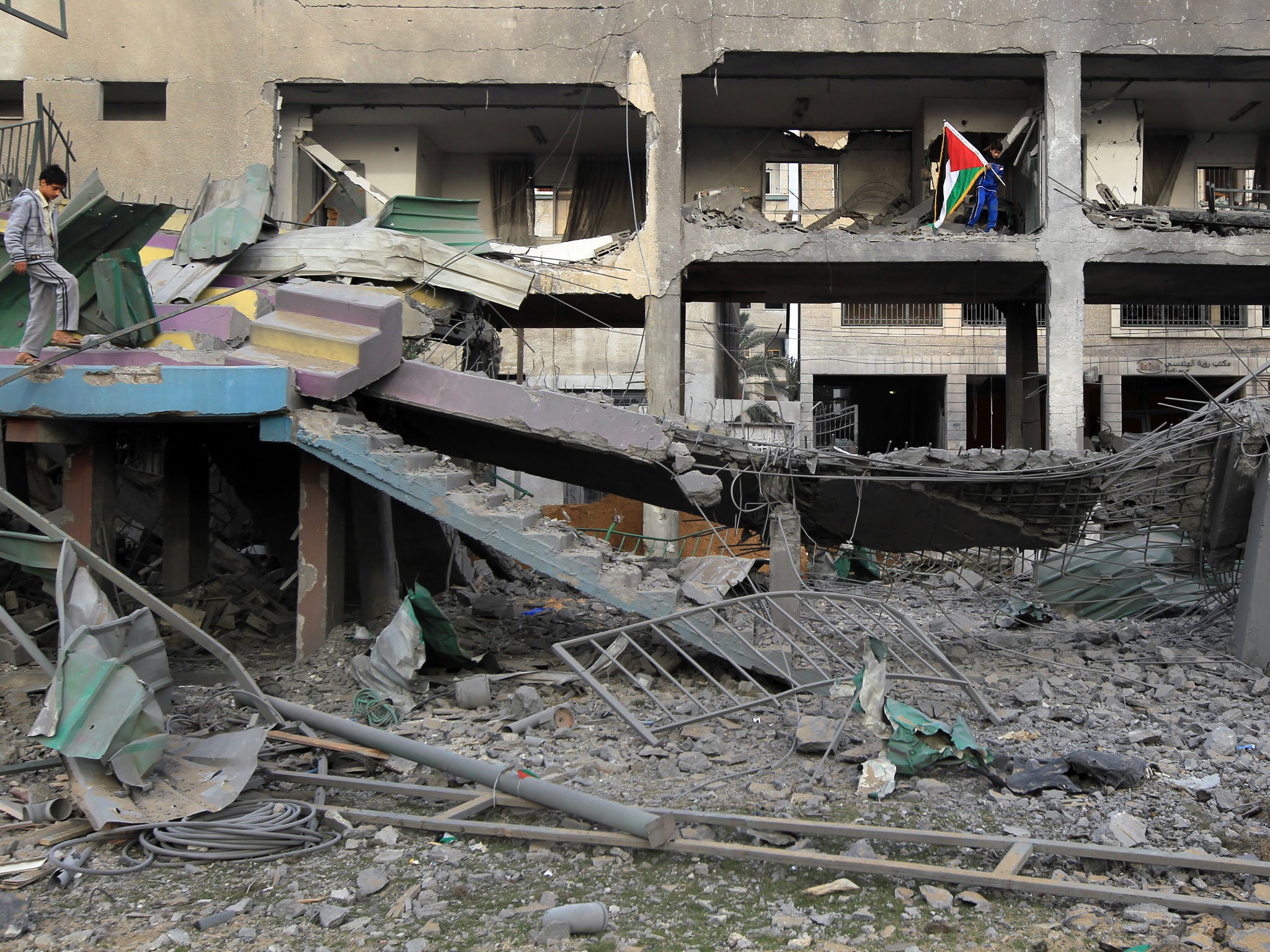Battered Gaza welcomes cease-fire between Israel and Hamas

Your support helps us to tell the story
From reproductive rights to climate change to Big Tech, The Independent is on the ground when the story is developing. Whether it's investigating the financials of Elon Musk's pro-Trump PAC or producing our latest documentary, 'The A Word', which shines a light on the American women fighting for reproductive rights, we know how important it is to parse out the facts from the messaging.
At such a critical moment in US history, we need reporters on the ground. Your donation allows us to keep sending journalists to speak to both sides of the story.
The Independent is trusted by Americans across the entire political spectrum. And unlike many other quality news outlets, we choose not to lock Americans out of our reporting and analysis with paywalls. We believe quality journalism should be available to everyone, paid for by those who can afford it.
Your support makes all the difference.Celebratory gunfire crackled across the Gaza Strip on Wednesday night as Palestinians hailed what they called a victory by Hamas in forcing an end to Israeli attacks.
But the hum of Israeli drone aircraft lingered overhead, underscoring a sense of uncertainty about whether a week of violence that has killed more than 160 Palestinians had come to more than a temporary end.
While cries of "God is great'' echoed from Gaza's mosques Wednesday night, shards of glass and other scenes of destruction across the crowded enclave conveyed an image that was less triumphant. A final Israeli onslaught had turned dozens of homes, shops and offices into rubble.
For the most part, the targets struck by Israeli warplanes and ships — government complexes, bridges, farms, smuggling tunnels, paramilitary training facilities and residences of suspected militants — had been connected in some way to Gaza's Hamas-led government.
But in the 24 hours before the cease-fire was announced, there was a major escalation in attacks by Israel, and the expectations of the Palestinians, who had hoped for an earlier end to the fighting, crumbled overnight Tuesday amid the thunder of strikes that sent flames hundreds of feet into the sky.
Many Gaza residents said they thought the signal was clear, even if negotiations in Cairo might bring the strikes to a halt. "We're going to target all of your buildings, and you have no place here," said one bystander who saw the destruction in Gaza City on Wednesday morning, characterizing the Israeli message.
As he spoke, an airstrike suddenly ripped through a building 100 meters away. It was immediately followed by another blast, and then another, and another. Panic broke out, and a crowd of spectators stampeded over arubble-strewn landscape as the buildings behind them seemed to erupt in a series of fireballs, smoke and dust.
In what were among the final strikes, Israel targeted two bridges, including one that connected northern and southern Gaza over a valley used to funnel sewage into the sea.
Other overnight airstrikes ripped through homes and farmland and reduced a major Interior Ministry complex to a wasteland of rubble the size of a football field. Known as Abu Khadra, the complex had been evacuated a week ago, and it contained military and police headquarters, but also the government offices for passports and other travel documents.
There were no casualties in the strike, employees said.
Among other targets was a villa that residents said belonged to Azzam al-Showa, the president of al-Quds Bank, which has no obvious ties to Hamas. On Wednesday, it was a mountain of concrete shards, torn rugs, broken flowerpots and the pages of books.
No one was home when an Israeli F-16 struck late Tuesday night, and neighbors said they were mystified by the target.
Showa was an energy minister under the Palestinian Authority in Ramallah. Now he is the general manager of al-Quds, but Hamas has its own bank, neighbors said — the Islamic National Bank, which also was destroyed Tuesday in an Israeli strike.
"We have no idea. He's a peaceful man, a businessman. He has nothing to do with anything," said Basil Milad, a neighbor.
The only thing about Showa that might have drawn the Israelis' attention, Gaza City residents said, was that his bank had recently started granting loans to Palestinians, whereas most other banks had stopped, afraid they would not be paid back.
The destruction from the week's fighting added new layers to destruction from years past in a territory that has never gotten on its feet.
Most of the strip's 1.7 million people are refugees — the descendants of those who fled ancestral homes on the land that is now Israel during the war over the Jewish state's creation in 1948.
The United Nations said Wednesday that 10,000 Gazans have been displaced within the strip in the past week, many Tuesday night after the Israel Defense Forces urged residents of the north to evacuate.
The most recent major Israeli offensive, an invasion of Gaza in 2008 and 2009, displaced thousands. Many of them have struggled since to rebuild homes while contending with an Israeli blockade on construction materials.
Over the past week, many Gazans said, much of the infrastructure that has been rebuilt since that last war has again been systematically destroyed.
Join our commenting forum
Join thought-provoking conversations, follow other Independent readers and see their replies
Comments